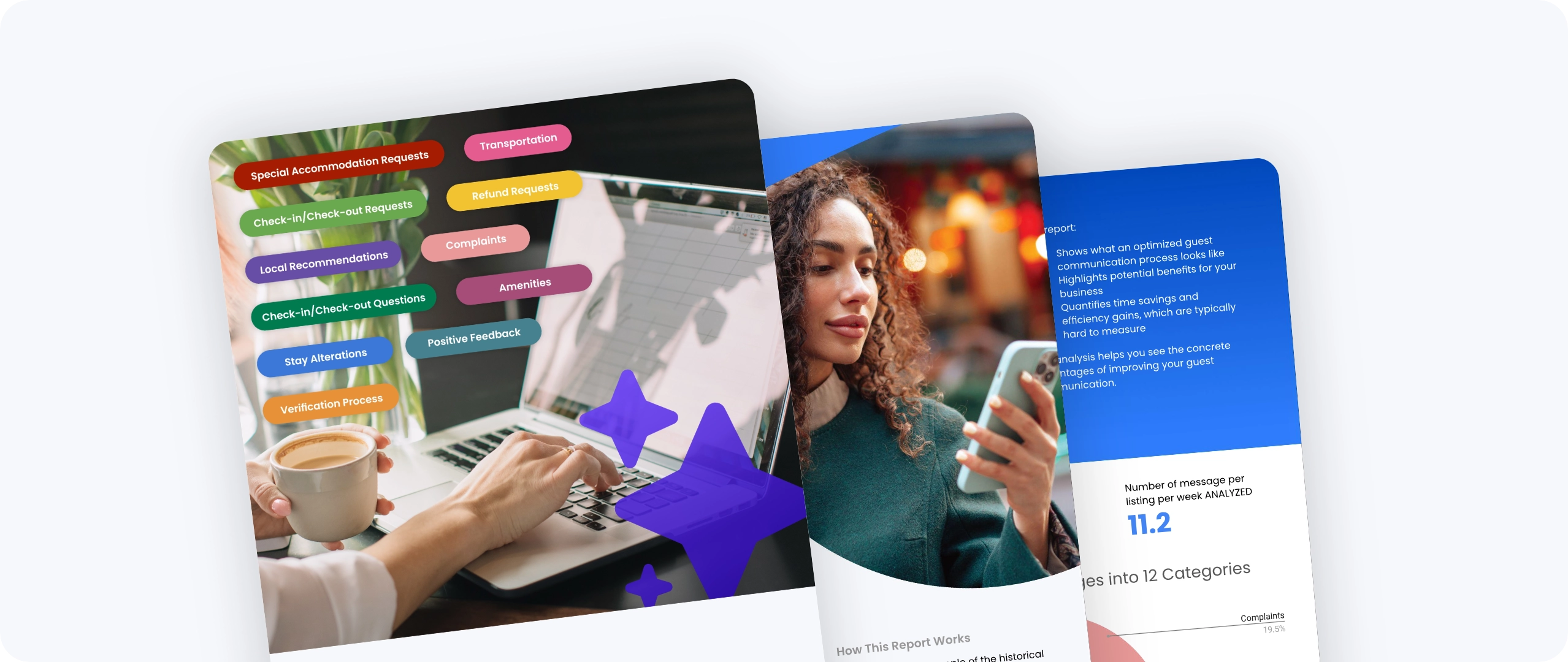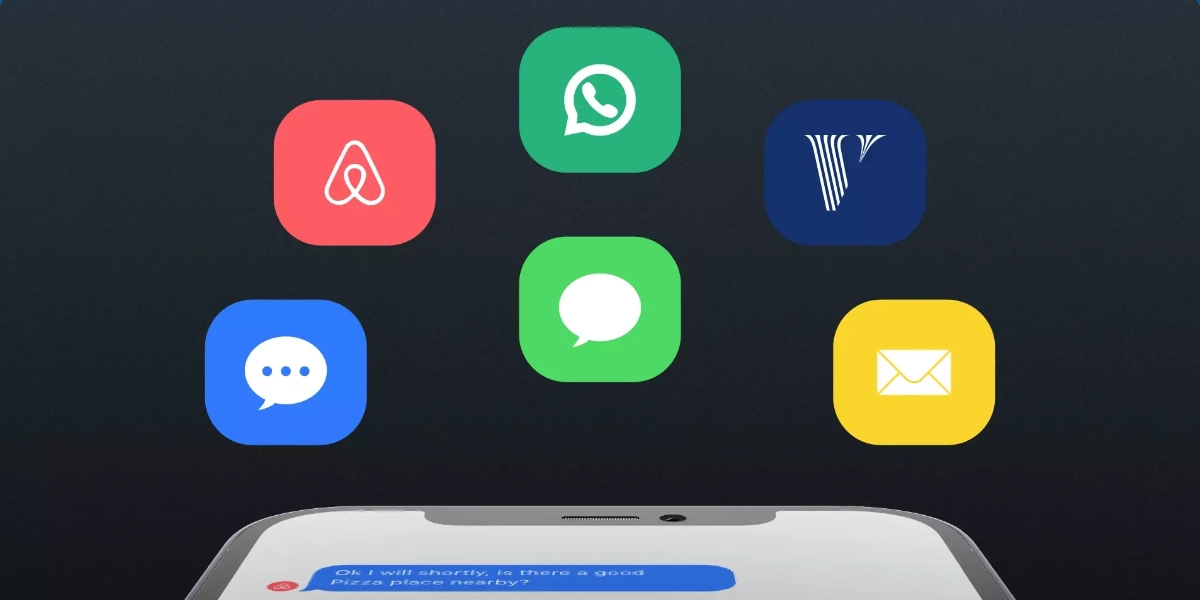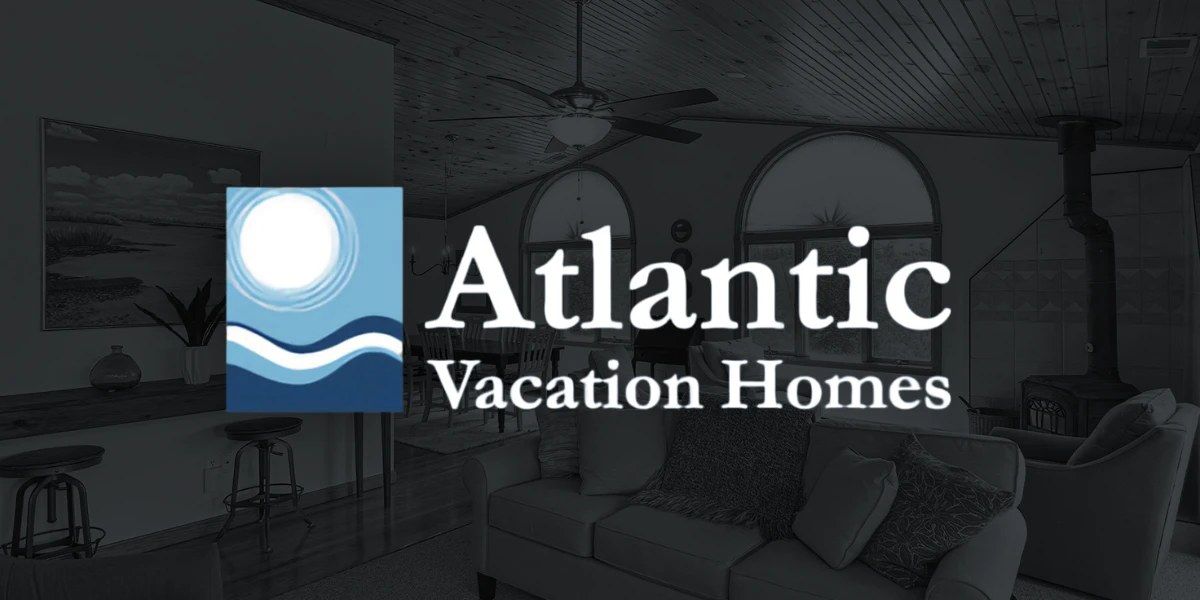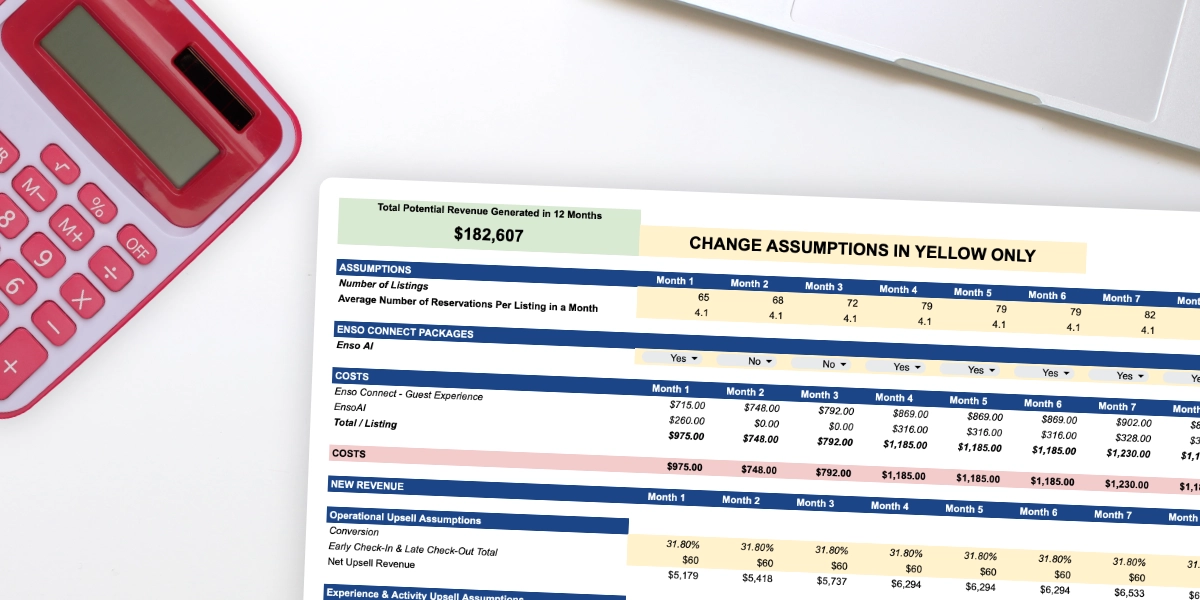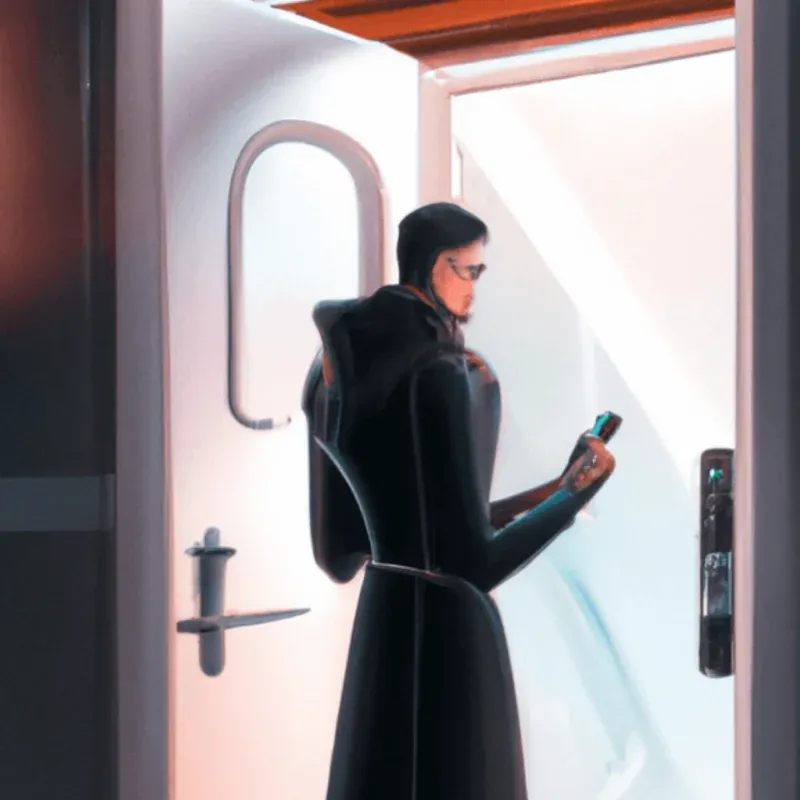Access management is an important part of every hospitality business. From hotel chains to individual Airbnb hosts and everything in between, keeping control of access to your property is crucial. While most hotels have the space and the staff to facilitate check-ins and checkouts, short-term rentals require alternative access solutions. This is where intelligent door locks come into play.
Smart locks are relatively new and evolving technology in the hospitality industry. Traditional remote access solutions, such as leaving a key under the doormat or using lockboxes, have been used for many years. These methods are still used by vacation rental hosts as they are often less expensive than more advanced technology solutions. As technology continues to evolve, smart locks have become an increasingly popular alternative to legacy methods, offering secure, convenient and contactless experience. The evolution of hospitality access over the years demonstrates how technology is constantly changing, improving guest experience and streamlining operations.
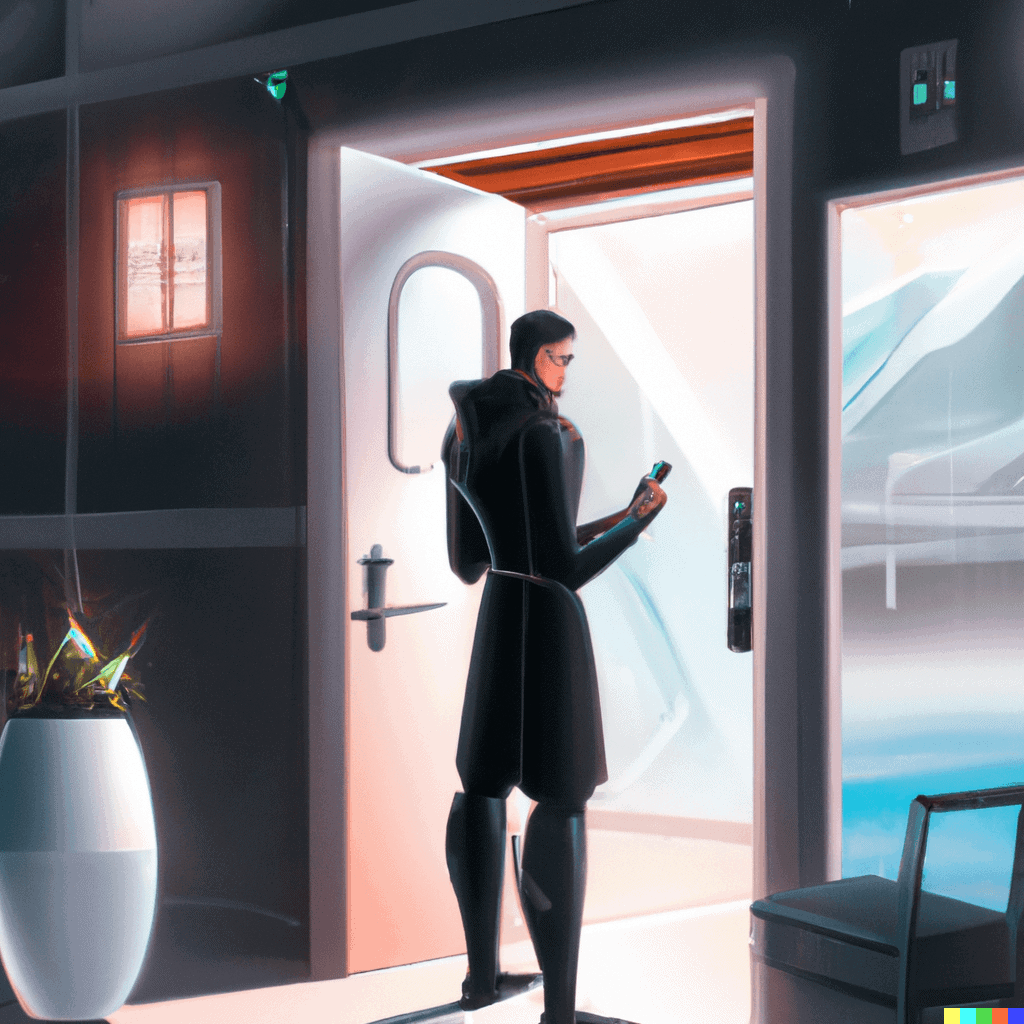
Table of contents
- What is a smart lock?
- How “smart” is a smart lock?
- How do smart locks work?
- What can smart locks do?
- Benefits of using smart locks in the hospitality industry
- Advantages of using smart locks in vacation rentals
- How smart locks help address main challenges for hotels today?
- Types of smart locks available for the hospitality industry
- Managing smart locks in hospitality
- SmartThings connection for RBOY APPS users
- How to choose the right smart lock for your hospitality business?
- What are the best smart locks for vacation rentals, boutique hotels and resorts?
- Smart locks in hospitality – common concerns
Remote-controlled digital locks are the latest technology making waves in the hospitality industry, and for good reason. Hospitality operators recognize smart locks as a way to improve guest experience by providing quick, secure and automated access to accommodations. This type of access management is becoming the norm in the tech-enabled hospitality industry.
Think about it, who wouldn’t want to avoid a crowded front desk and long check-in lines? With electronic locks guests can simply use their smartphones or other mobile devices to get in their rentals. Operators can remotely and securely manage property access for guests, maintenance vendors and other visitors. This makes it a valuable tool for hospitality businesses with limited or no on-site staff or for handling after-hours check-ins.
In short, smart locks are quickly becoming a necessity for hotels and property managers, looking to stay competitive and up to date.
What is a smart lock?
Smart lock is an electronic lock that can be controlled and accessed using a smartphone or other connected device. It locks and unlocks doors without a need for a physical key. Smart locks feature remote access, automatic locking and unlocking, and the ability to grant temporary access to visitors. They can be controlled through a mobile app, electronic keypad, biometric sensors, voice commands, etc.
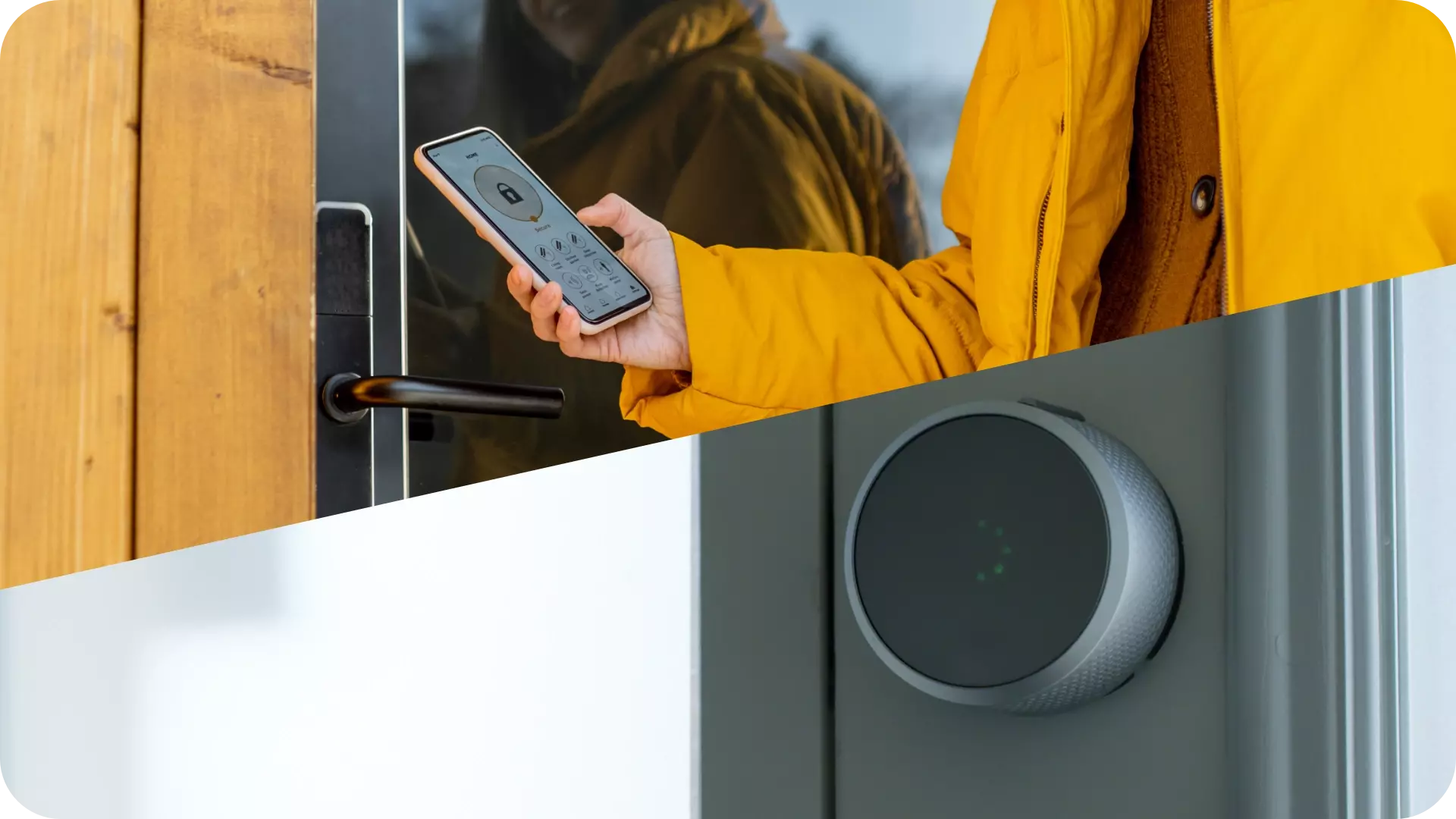
How “smart” is a smart lock?
What do we mean by referring to the door locks as “smart”? We mean that these devices can connect to other technology and perform actions, like pairing to smartphones, locking and unlocking, sending notifications, etc. The locks “talk” to the paired smartphone or control panel and follow their instructions.
Smart locks offer advanced features such as grant or revoke access from afar, track and monitor entry activity through a smartphone app, integration with other smart home systems, etc. These features provide added convenience and security compared to traditional mechanical locks.
Overall the “smart” in smart locks refers to the advanced technology, providing added convenience and peace of mind to hoteliers and property managers.
How do smart locks work?
There are different types, brands and models of smart lock devices. They vary from locks with digital keypads, enabled with codes, to devices that connect to smartphones through WiFi and/or Bluetooth.
Mechanically, smart locks work the same way as their “dumb” relatives, using tech instead of traditional keys. These can be PIN codes, Bluetooth signals, fingerprints or even voice commands that open the smart door locks. They connect to your smartphone app or a smart home hub and perform actions, like locking, unlocking, sending notifications, etc.
Smart locks usually replace your deadbolt lock or attach to the existing deadbolt in your door. All of them allow you and your guests or visitors to go key-free and control your doors from afar.
Like all electronic devices, most smart locks are powered by batteries. The batteries last usually between 10 months and a year. The battery life depends on how actively the lock is being used and the battery itself.
What can smart locks do?
Or to be more precise, what you can do if you use smart locks in your home or rental property. Let’s review the smart lock functionality that makes our lives as consumers, hosts and hospitality professionals easier.
Pair with a smartphone app or smart home hub
Most smart lock companies have iOS and Android apps to remotely control the locks. In case you have more than one smart home device, you’d want to have a smart home hub to control those devices and make them sync between each other.
Allow real-time monitoring
Most smart locks have a device history available in their app. So you can know when the lock is being used, seeing that your guests unlocked the door at the check-in and locked at the checkout.
Connect to Bluetooth for hands free door control
Smart locks with Bluetooth connectivity can be set up to unlock the doors when your smartphone is in close proximity.
Create and manage virtual keys
The mobile keys can be lock and unlock commands from afar, providing access codes, setting up voice commands or even fingerprints or face recognition.
Create PIN codes for entry
Most new locks have a functionality of creating permanent or temporary entry codes. This way you can configure access settings for guests, maintenance, cleaning or other visitors you might have.
Set access conditions and limitations
To go even deeper into access control, with smart locks you can set limitations and conditions for the entry codes. For example, only specific days and even specific time slots when cleaning, maintenance, dog walker or other visitors are expected.
Enrol in automated flows
Smart locks can connect to other tech and enrol into automated flows. For example, having the locks paired with Enso Connect, hosts can provide guests with entry codes right after their verification.
Another example of smart lock automation can be locking after the door stays open for a specific amount of time, etc.
Send notifications and alert to your smartphone
The smart locking system can alert you if someone is messing with the lock. In some cases it can be configured to automatically call the police if this happens. For vacation rental professionals receiving notifications when guests are in or out of the property is crucial. This is important not only for security reasons but also helps in managing operations and creating efficiencies.
Integrate with other smart home devices
You can take it to the next level of comfort and experience by syncing your other smart devices with the locks. For example, turning on the lights or heating on arrival and vice versa – switching off when guests go out.
Sync with the security cameras
For an extra security levels you can connect your smart lock app with the doorbell or other outside cameras. This will allow you to see who approaches your property in case you need it.
Benefits of using smart locks in hospitality
So how can hotels and vacation rentals benefit from all the great functionality of smart locking systems? Here is why you need smart locks in your hospitality business:
Improved security
Smart locks help prevent unauthorized access to a rental property or hotel rooms.
The device history records, access logs and notifications make it easy to track who has entered and exited the premises. Smart lock connectivity together with a robust guest verification automation can protect rental properties without a heavy spend.
Better guest experience
Hospitality operators have to catch up with the guest expectations for self service, contactless check-in process and quick seamless access.
Electronic locks allow guests to use codes, their mobile devices or other devices instead of conventional keys. This makes check-in and checkout faster and more efficient and also reduces the risk of stolen or lost keys.
Operational efficiency
Using smart locks in the hospitality business reduces the need for manual key management, such as issuing, collecting keys, etc. Smart locks can be managed remotely, so property managers or hotel staff can lock, unlock doors from a central location. This allows for more efficient use of staff time, saving a huge amount of hours.
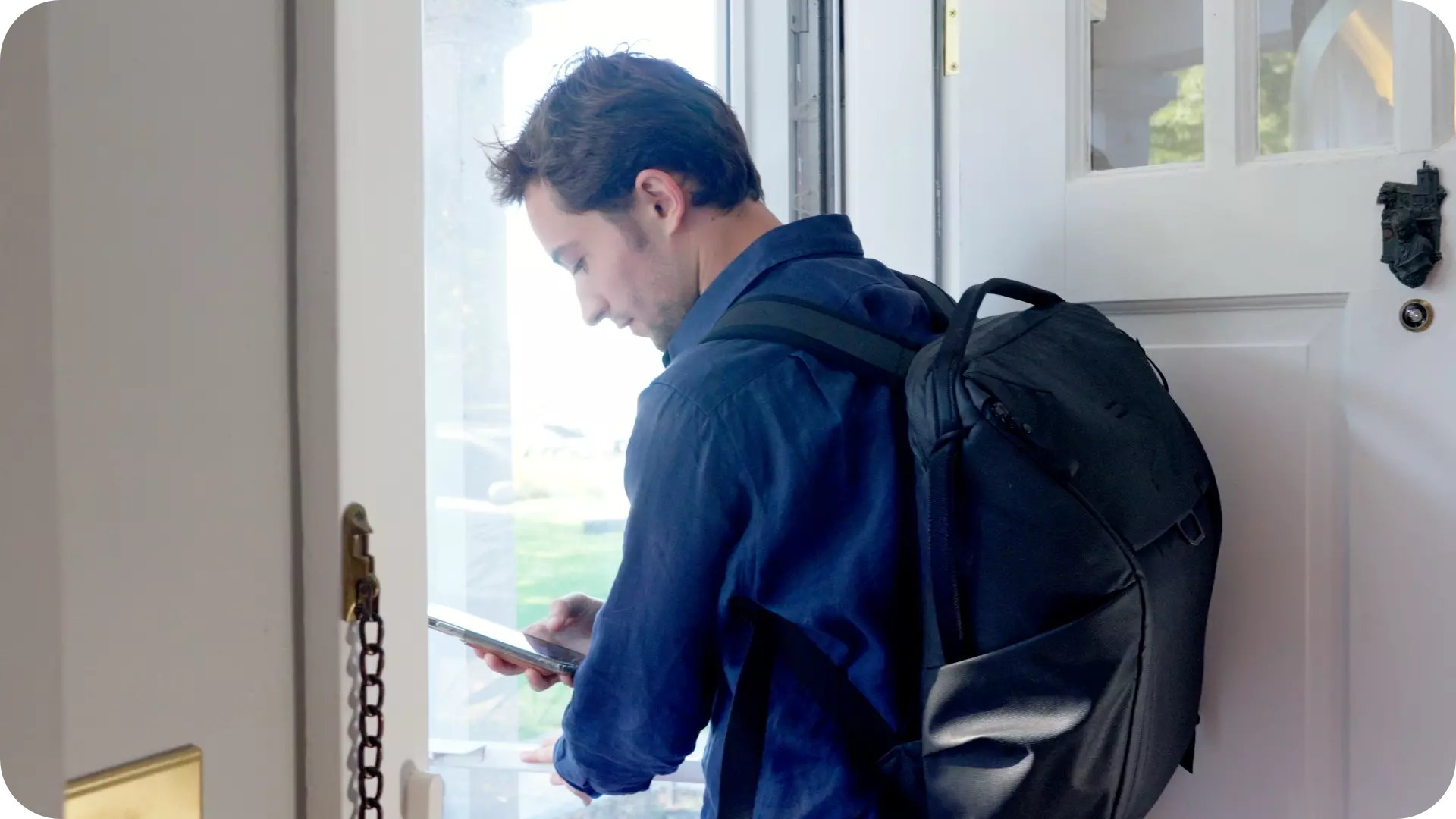
Advantages of using smart locks in vacation rentals
In addition to improved security, better guest experience and operational efficiency, smart locks provide unique advantages to vacation rentals.
Most short-term rental businesses manage individual properties, with no lobby or concierge on the spot to address issues. Hence being able to manage access remotely, track and monitor doors activity and automate processes are huge advantages here.
Automation for convenience, flexibility, efficiency and revenue opportunities
Smart locks can be integrated with other systems, like property management software, guest verification, messaging, payment apps, etc. This allows vacation rental professionals to create automated flows for managing access, providing important information, upselling and communicating with guests.
This not only provides increased convenience and flexibility for guests, but allows operators to increase revenue per guest easily. For example, offering flexible access upsells if guests want the doors to open beyond the standard check-in and checkout time.
Ability to track and monitor access to the property
Smart locks can be the “eyes and ears” on location for vacation rental managers. In addition to controlling who and when goes through their doors, they can configure edge cases. For example, restricting some areas of the property for entry, opening the doors for cleaning or maintenance at specific times, etc. By receiving notifications about smart locks being used, operators can know about what is happening in real time. Whether the guests arrived or left, whether the maintenance team finished working on the property, whether someone is attempting unauthorized access, etc.
Proven data to fight chargebacks
Data captured by smart locks helps fight chargebacks and scammers. Short term rental businesses suffer from fraudulent guests, who refuse to cover payments for their stay. These people are usually claiming to their bank that they don’t recognize the charge and never stayed at the rental property. Data from the door locks, together with other proofs of stay can be sufficient to make guests pay for services.
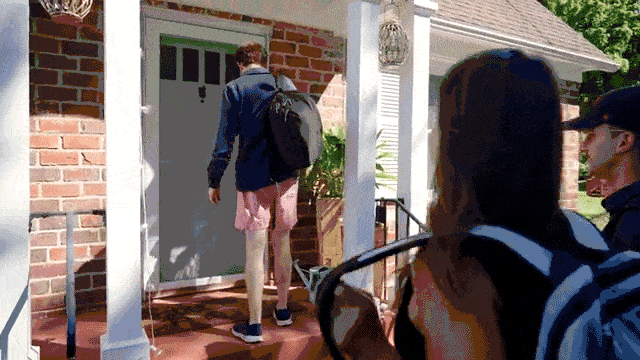
How smart locks help address main challenges for hotels
Most hotels have a dedicated team on-site to take care of guests and technically don’t need to manage access remotely. However more and more modern hoteliers understand the importance of innovation in this area, implementing smart locks in their business.
Changing locks in a hotel can be very expensive, on the other hand the advantages are huge. Smart locking systems help hotels address the main challenges of hotel operators today:
Changing guest expectations
The last couple of years have changed the expectations guests have for hotels. There are two main reasons for this change:
- Consumer demand for quick, seamless and personalized service. The service standards set by big digital retailers, like Amazon, is spreading to other industries, including hospitality. Online check-in, immediate access, no wait – this is what the guests of today want when they travel and stay in hotels.
- COVID-19 pandemic that resulted in enhanced industry-wide hotel cleaning and safety standards. Guests not only want their rooms cleaned more frequently, they also prefer contactless service. This is why contactless check-in and keyless entry is something that hotels should look into to keep their guests happy.
Labor shortage
This problem has been hitting the hospitality industry even before the pandemic or recession. The jobs in the industry are not very well paid and hospitality is hard work. During the pandemic it also was dangerous. This is why the turnover is high and hospitality businesses are struggling to find and keep good employees.
Smart locks and room access automations not only serve hotel guests but also help manage the team’s time more efficiently. Using smart locking systems together with other guest experience technologies helps hotels implement high-tech low touch strategy.
Rising costs
High costs and lower customer buying power makes hotels seek solutions to save money, create efficiencies and find new revenue streams. The energy crisis in Europe put the energy efficiency topic on top of minds of many hoteliers.
In addition to time savings, smart locks can be integrated with other smart tech in the rooms. For example to turn off the heating and lights when a guest leaves, etc.
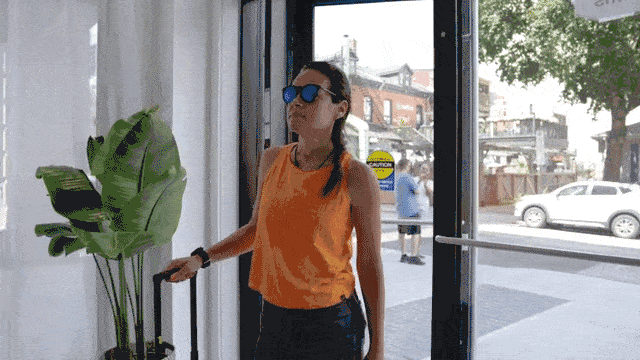
Types of smart locks available for the hospitality industry
Today there is a wide variety of smart locks with functionality, allowing hospitality operators to benefit from using this technology. These are electronic door locks enabled with WiFi, Bluetooth, NFC and keypads.
There are also adapted locks that can be added to existing “dumb” deadbolt, adding smart technology and native smart locks. These ones require a completely new door lock with smart capabilities to be installed.
Bluetooth-enabled smart locks
Bluetooth locks are smart electronic devices, powered by Bluetooth wireless technology, connecting them with smartphones or other smart devices. This allows you to control your door lock hands-free as you approach, eliminating the need for a traditional key.
Bluetooth locks are handy when you are on-site and provide the convenience of a key-less experience. If your door is too far from your smart home hub or phone, you’ll have a connection problem. This is why this is not enough for remote access management.
WiFi-enabled smart locks
These locks contain electronic components allowing them to connect to home internet through WiFi network. This connection provides a remote access to the lock through a smartphone or a smart home hub. These locks have more remote functions, like locking and unlocking the door from afar, monitoring ins and outs of property, etc.
NFC-enabled smart locks
These are smart locks that have NFC chips inside. They require passive NFC tokens to unlock their respective smart locks. Newer smartphones have NFC chips installed, so it is possible to use a smartphone as an entry token. However it only works with Android, because Apple restricts the use of their built-in NFC chip to the Apple Pay. So NFC locks are not compatible with iPhones, which limits the keyless access for many guests.
NFC-enabled smart locks allow control over monitoring and granting or restricting access.
Keypad smart locks
Digital keypad locks require a numerical code instead of a key to grant entry to a property. They have a numerical pad, where visitors have to punch in the access code to open the door. This is similar to accessing software with a password. When the correct code is entered, the door opens. It can be set to remain locked after several wrong attempts to enter the code.
These locks can’t be picked or bumped like conventional locks. It’s easy to change a security PIN code whenever necessary. They can be mechanical and battery-powered, not requiring connection to a power source.
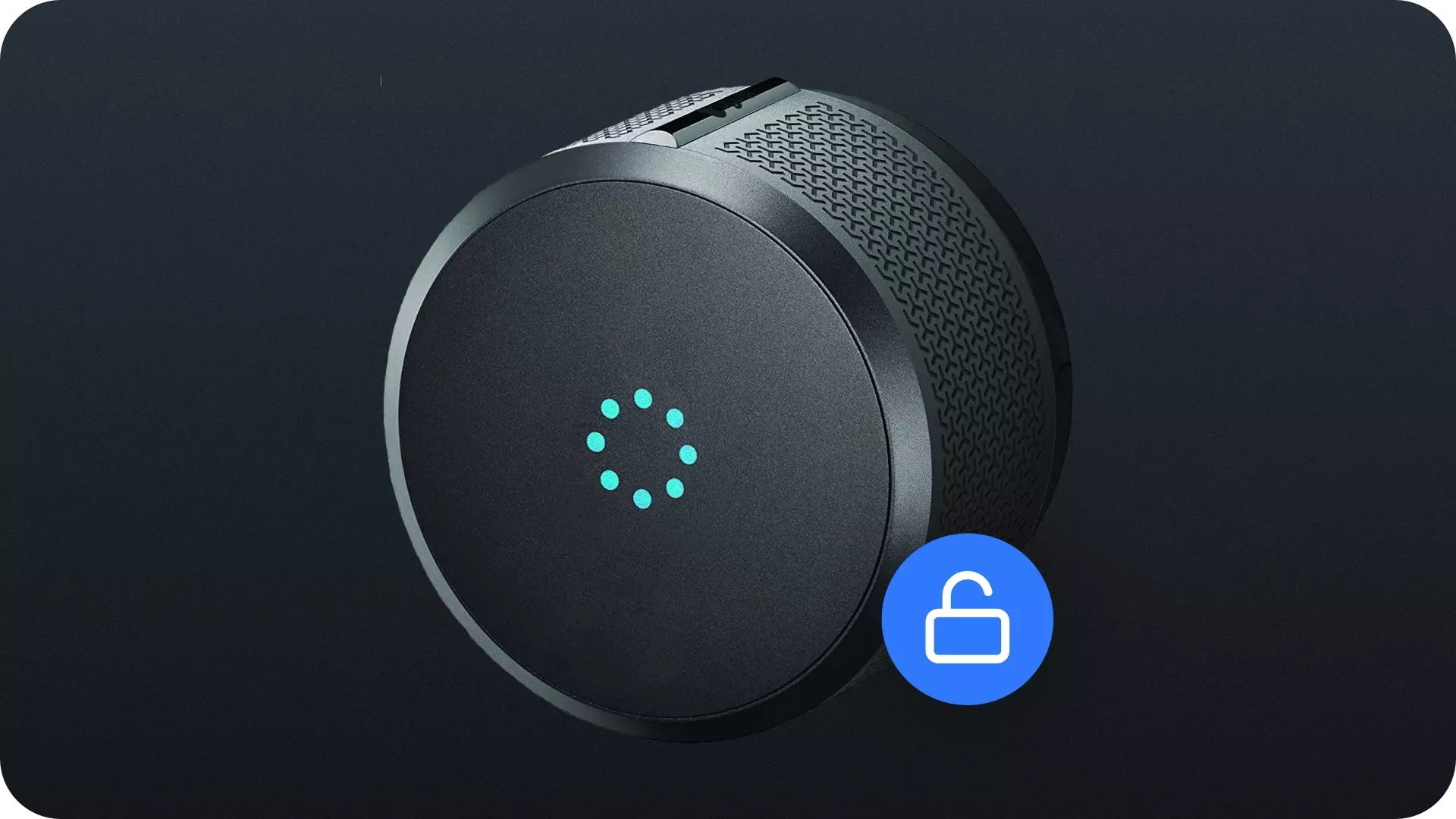
Managing smart locks in hospitality
To control your smart locks remotely you need a WiFi connectivity bridge to be able to “talk” to the locks. Some of the locks, like Salto and August, have this functionality. The others – Z-Wave, ZigBee, etc, need a smart home hub, like SmartThings for remote control and management.
There are apps and device handlers, allowing hosts to automate rental properties, like RBOY APPS. A popular app for automating individual access codes generating is Rental Lock Automator (RLA).
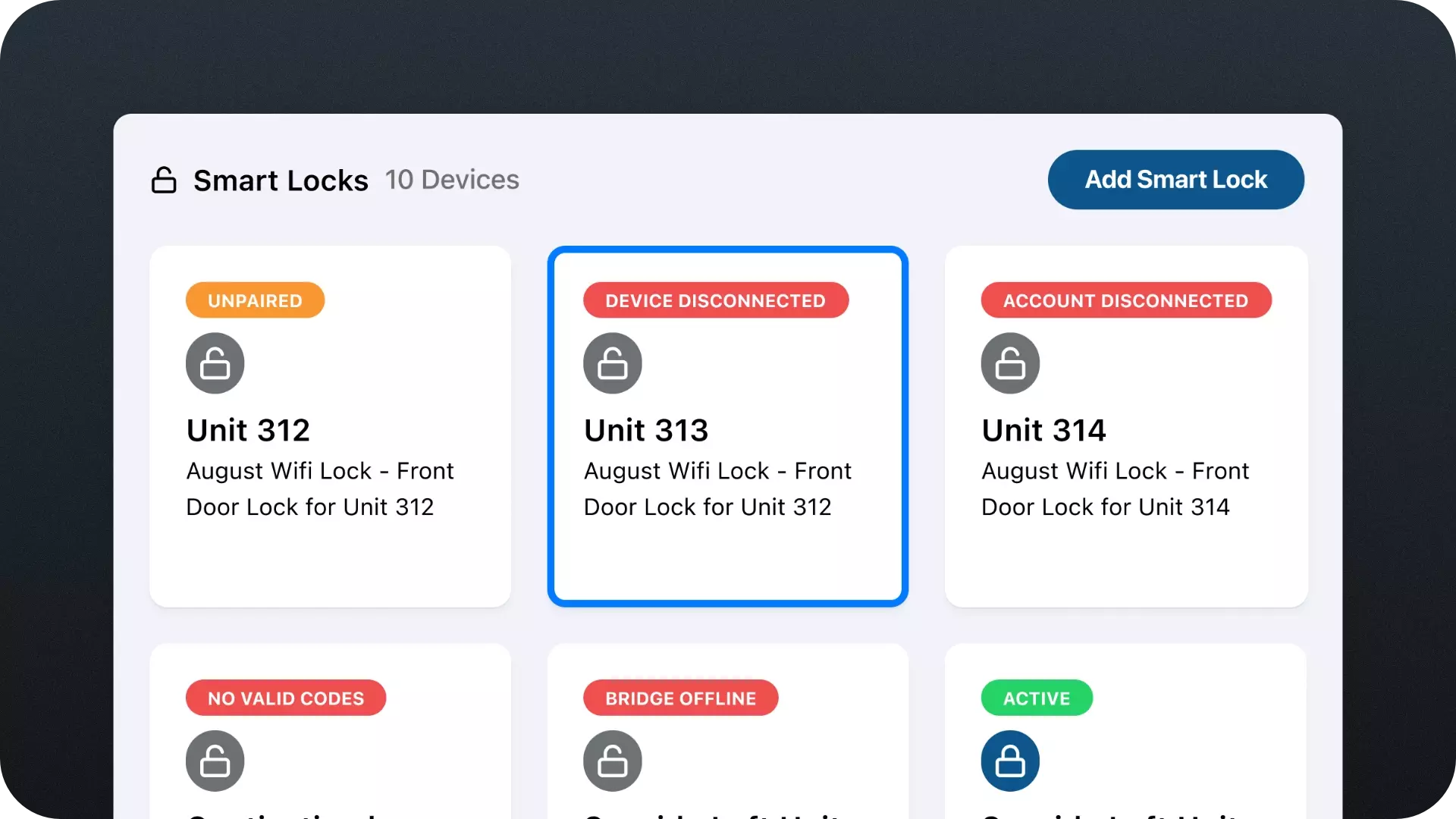
SmartThings connection for RBOY APPS users
As of December 31st, 2022 the Rental Lock Automator (RLA) fails to generate lock codes for reservations on SmartThings. The reason – the app relies on the Groovy platform to connect with SmartThings. And this platform is being shut down by SmartThings, as they are working on modernizing their platform. So RLA users need a direct integration to SmartThings in order to keep managing their code access.
Note: Enso Connect has a direct integration with SmartThings and can help RBOY APPS users looking for a solution.
How to choose the right smart lock for your hospitality business?
When choosing a smart lock for your hospitality business, consider the following factors:
- cost and scalability;
- compatibility;
- integration with other systems;
- access control;
- remote management;
- durability;
- security
- reviews and testimonials
Cost and scalability
Determine your budget and long-term cost savings. Consider the cost of the lock and its scalability for future property expansion. The cost of smart locks range between $100 and $300, depending on brand and type.
Compatibility with current hardware
The lock of your choice has to be compatible with your existing door hardware. Make sure it can be easily installed.
Integrations with other systems
Check whether the smart lock can integrate with your property management systems or other existing systems, like keyless entry apps. Evaluate the features and compatibility with your current tech.
Access control
In the hospitality business you need a lock that allows for flexible access control. Meaning the ability to create unique codes for each guest or assign different levels of access to staff members. Or even restrict entry to different spaces in the property.
Remote management
For vacation rental businesses, as well as modern hoteliers it’s important to choose locks that can be managed remotely. The devices have to be configurable to adjust access settings and allow tracking and monitoring. You want to be able to view the logs of who and when has entered and exited the property.
Durability
In a hospitality business door locks are used frequently. You need to chose smart locks made of durable materials with long battery life.
Security and reliability
Choose the locks that have a track record of security and have been certified by industry organizations. Look for devices with a good reputation for reliability and customer support.
Reviews and testimonials
Read reviews from other businesses in the hospitality industry, ask for recommendations and consult with experts in the field.
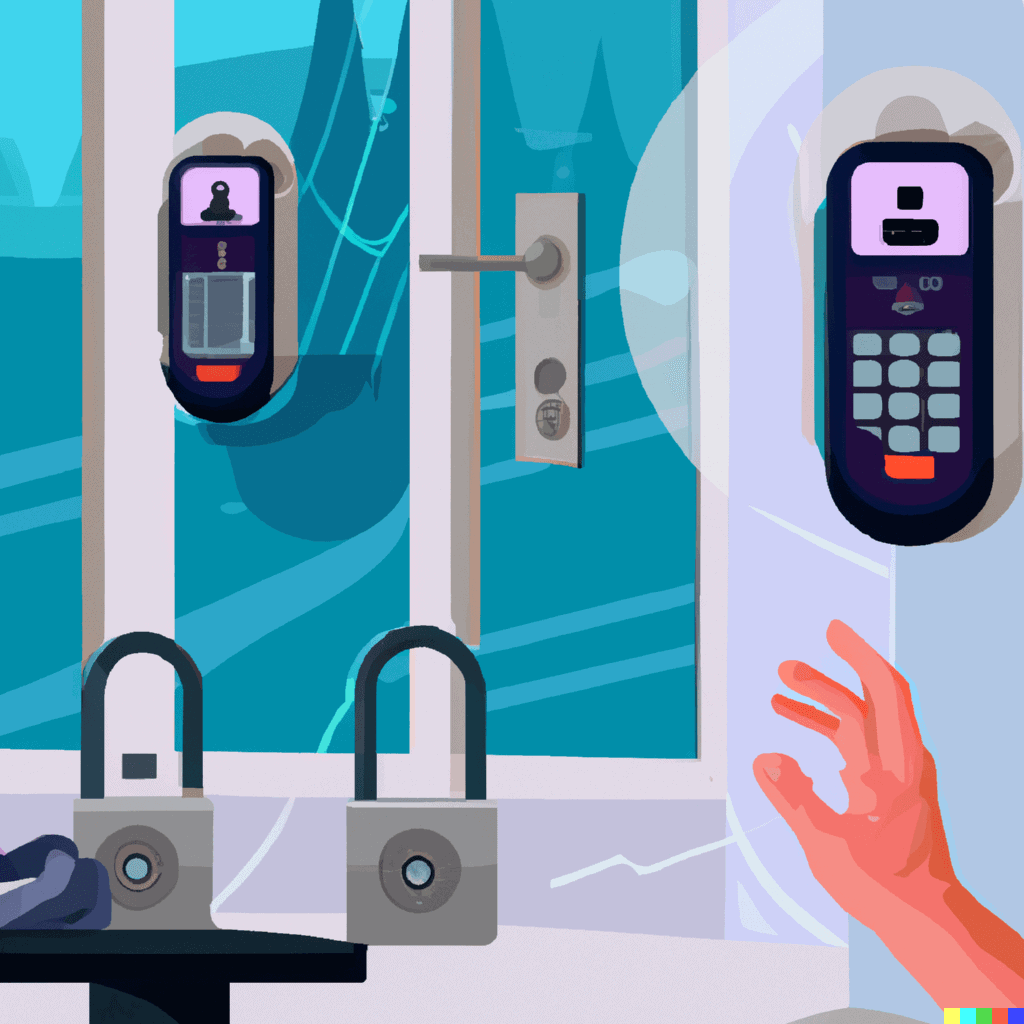
What are the best smart locks for vacation rentals, boutique hotels, and resorts?
Best smart locks for vacation rentals
Yale & August Bridge
One of the oldest and most well-known lock manufacturers in the world. Yale is known for making some of the most advanced smart locks on the market such as the Yale Assure and Nextouch. This is thanks to the company’s long history of making durable and reliable products, as well as a close engineering partnership with sister brand August.
Features:
- Simple, sleek design;
- Easy to install, attaching to existing deadbolts and allowing to keep the original key;
- Work with mainstream home automation platforms
- Integrate into the Airbnb calendar;
- Can be controlled with popular voice assistants.
- Built-in wi-fi – no need for additional hardware to connect
Kwikset
The company was one of the first to introduce the concept of interchangeable cores, which allowed users to easily change the lock on their doors without having to replace the entire lock. This innovation made Kwikset a leader in the industry and helped the company to become known for its durability and reliability.
Kwikset’s smart locks are particularly popular among consumers who want to be able to control their locks remotely and receive notifications when someone enters or exits their home.
Features:
- A variety of smart locks, deadbolts, and touchscreens
- Works with Bluetooth enabled phones or eKeys codes on the touchscreen to enter
- Retain a traditional keyway for the backup key that can be used to lock/unlock
- Kwikset Halo is wi-fi enabled, allowing for remote control.
Schlage
A well-known security systems and smart lock provider. Sturdy and stylish, Schlage smart locks are compatible with any smart home system. The Schlage Encode TM Smart WiFi Deadbolt doesn’t require adaptors or accessories to connect while the Sense Smart Deadbolt lets you unlock the door from the app or by entering an access code on the touchscreen. Meanwhile, the Schlage Connect Smart Deadbolt includes an additional layer of encryption and can be controlled with your voice.
Features:
- Easy installation
- Up to 100 codes with 3 levels of access
- Remote door unlock door via smartphone
- Works with voice assistants such as Alexa, Google Assistant, and EchoShow
- Integrates with common smart home networks
- Works with other systems such as Ring doorbell and alarm, Key by Amazon, etc.
Lockly
In addition to fingerprint technology, Lockly’s smart locks also offer a variety of other advanced security features such as a “peek-proof” display, which makes it difficult for others to see the numbers being entered when the user is entering their access code.
Despite their advanced security features, Lockly’s smart locks are also known for their ease of use. The locks can be easily installed without the need for professional assistance, and they can be controlled using a smartphone app. This app allows users to easily add and remove fingerprints, access codes, and other forms of access, as well as check the lock’s status and receive notifications when the lock is used.
Features:
- Easy installation
- Auto lock feature
- Remote management and real-time monitoring via smartphone or online portal
- Restrict access codes to specific days and times
- Advanced biometric fingerprint sensor stores
- PIN Genie technology prevents theft of access codes through digital keypad
- Generate offline access codes that don’t require an internet connection
- Backup access through physical key
- Integrates with home automation systems
- Can be controlled via voice through Amazon Alexa and Google Assistant
Best smart locks for boutique hotels
Salto
Offers a range of door locks, including traditional keyed locks, keyless entry systems, and smart locks that can be controlled using a smartphone app. Salto’s locks are known for their advanced technology and innovative features, making them a popular choice among homeowners and businesses alike.
Features:
- Multiple ways of opening doors: with a digital key, code, card, fob, or smartphone
- Remote management and real-time monitoring via smartphone app
- Integrates with home automation systems
- Advanced security features
- Allows to set up access schedules for guests and employees
- Battery-powered
- Can be integrated with other wireless systems, such as access control or energy management systems
- Smartcard and RFID card ready
- Mobile access via Bluetooth
- Tamper-proof: The lock will send an alert if someone tries to break in
- App supports multiple languages
- Integrate with other systems such as access control, CCTV, and fire alarms.
- The locks have a high level of security with a variety of encryption options.
Igloohome
The flagship product of Igloohome is a smart lock that can be controlled using a smartphone app. This allows users to easily lock and unlock their doors, as well as grant access to others, without the need for physical keys. The smart lock is also equipped with a number of security features, including encryption and authentication, to ensure that only authorized users can access the property.
Features:
- Remote access using a smartphone app
- Keyless entry, use a code or a virtual key instead
- Scheduled access for specific people, such as guests, vendors or employees
- Auto-locking
- Monitoring and recording of who has entered and exited the door, and when
- Can withstand outdoor conditions
- Bluetooth connectivity
- Battery-powered
- The lock will send an alert if someone tries to break in
- App supports multiple languages
Smart locks in hospitality – common concerns
In spite off all the benefits of using smart locks hospitality there are still a few common concerns:
Security concerns
One of the biggest concerns is that, like all connected devices, smart locks can be hacked or tampered. Trusted lock producers provide features for increased security, reducing or eliminating these risks.
Hosts should use security best practices, such as protecting your WiFi connection with a password and making the password complex.
Reliability
If for some reason locks don’t work or don’t properly connect to the systems in the business, the check-in experience can become a nightmare for guests. This is why it is important to make sure that the smart locking systems you are using are compatible with other systems in your business.
Battery life
The battery-powered smart locks need to have long battery life to avoid the inconvenience of the need to replace the batteries frequently. For many locks out there the battery lasts for many months.
Guest experience
Will my guests be able to use the lock properly? Most of the trusted smart lock providers make user experience a priority, making the locks easy to use.
Integrations
For hospitality operators it is important that their digital locks are “talking” their property management system, access control and other software. This is why the research is very important before implementing the locks in your properties.
Cost
The hardware and installation can be expensive, especially when it comes to a high number of properties or hotels. Cost varies depending on the brand and lock type. It usually is between $100 and $300. Together with the maintenance, implementing smart locks in a growing business can be a big investment. In the long term though the time saved, elevated security and guest experience cover the expense of having smart locks in properties.
Privacy
Some guests might be concerned about the privacy of their data when using a smart lock. This is no different from any guest data collection and it is important to be transparent and open about the use of the data collected. It is important to have a privacy policy, explaining to the guests how their data is stored, used and protected.
Technical support
High tech devices like smart locks require high maintenance and responsive technical support for troubleshooting. When choosing smart locks for your hospitality business, get opinion about the vendors’ support team from current users.
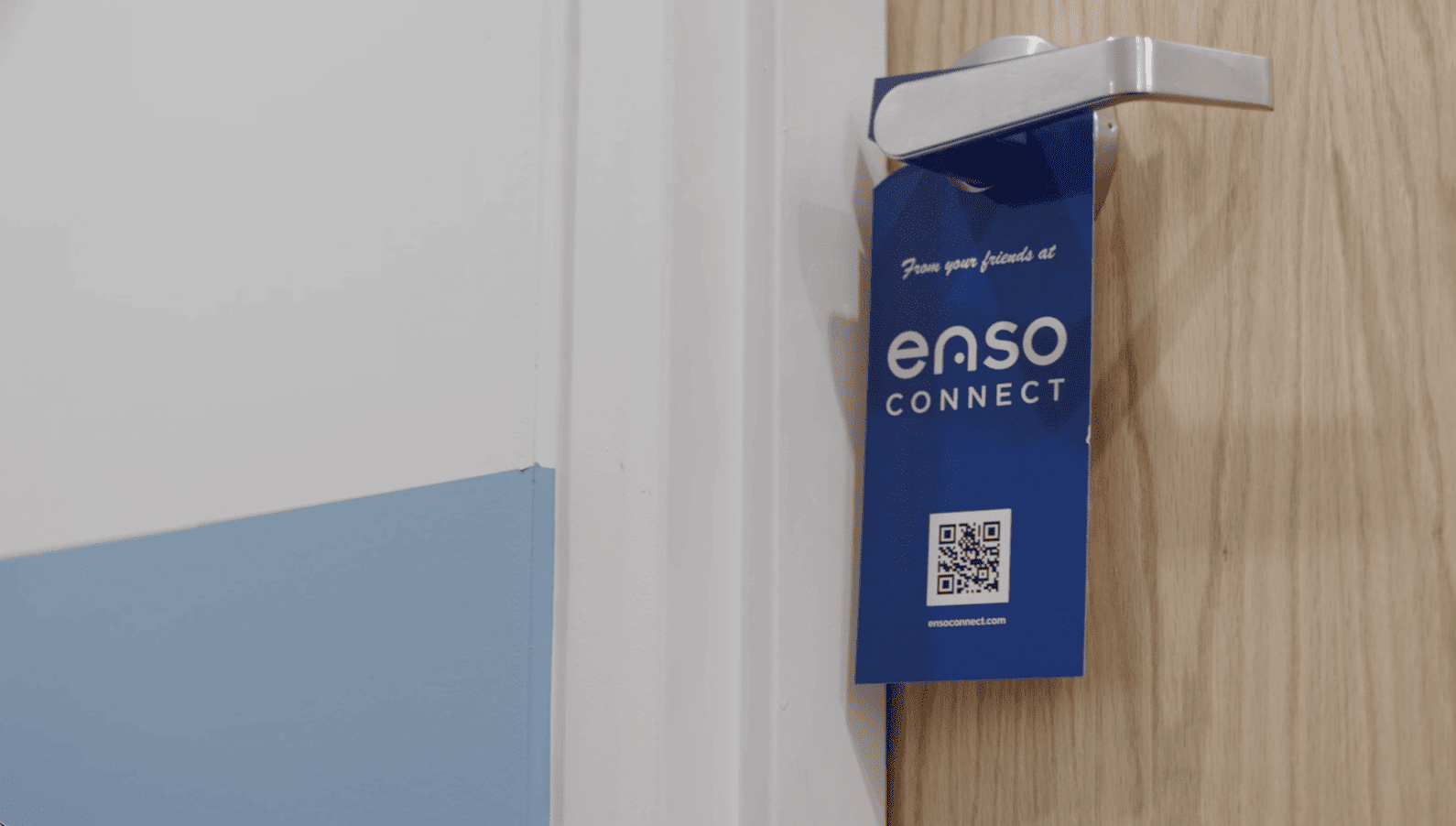
Conclusion
Still thinking about equipping your business with smart locks? Keep in mind the benefits of using this modern technology to secure your properties, elevate the guest experience and create efficiencies.
If some of the concerns still keep you away from smart locks, don’t give up on your contactless check-in experience.You can still offer it to your guests. Talk to our experts to learn more about how to do this.
Have questions about specific smart lock brands, functionality and integrations? Reach out and shoot your question here.
